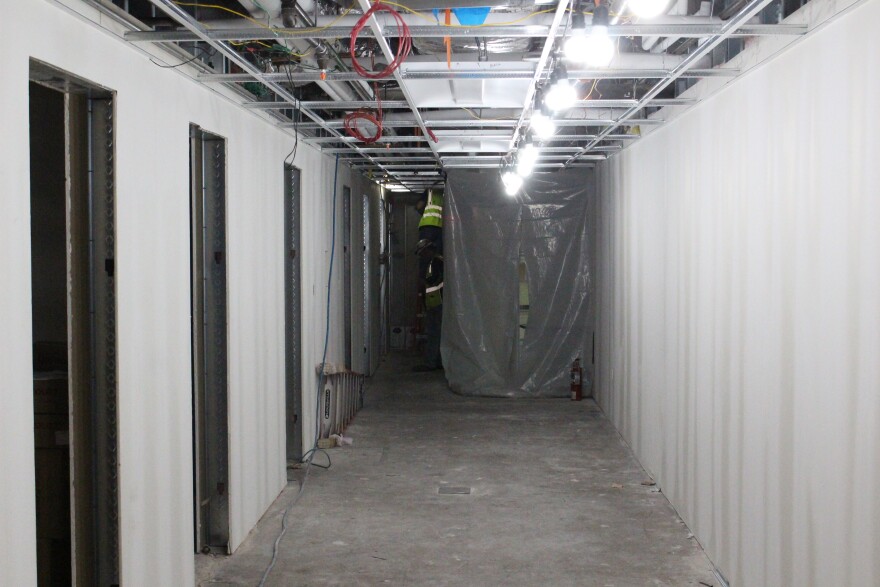A vote by commissioners Tuesday takes a program known as “Dallas Deflects” one step closer to opening up.
Dallas Deflects would give people subject to arrest for a nonviolent crime the option of staying at Homeward Bound, a nonprofit behavioral health care agency with a facility in Southern Dallas. If they agree to transport there rather than jail, people could get medical care and connect to services.
It’s an effort to get people the help they need, rather than lock them up.
“Imagine if somebody has been warned off property, has talked to the police, and has returned. Something’s going on with that person,” said Homeward Bound Executive Director Doug Denton. “It’s not necessarily criminal. And we want to address what those concerns are.”
The program will initially only take in people accused of criminal trespass. According to the Dallas County District Attorney’s office, there were 103 arrests for criminal trespass in the county in November. That number doesn’t include cases bonded out of the municipal jails or those in which a defendant had another case or warrant at the same time.
Dallas Deflects is part of a push by District Attorney John Creuzot to replicate the success of the Ed Emmett Health Diversion Center in Harris County. Thousands of people have been dropped off there since it opened in 2018, according to the Dallas Morning News. And that has significantly reduced jail bookings.
“Even brief periods in jail cause significant life challenges for persons with mental illness, jeopardizing employment, housing, and benefits,” according to a document from Creuzot’s office.
The document calls Dallas County the “second largest mental health treatment facility in Texas.”
Julie Turnbull, chief of the Restorative Justice Division at the Dallas County District Attorney’s Office, said in an email they expect about 450 people will use the program in its first year. It will initially run from 10 a.m. to 10 p.m., and will work with only the South Central Division of the Dallas Police Department, DART Police and Parkland Hospital District Police.
Participants must also be 18 years old or over, not have outstanding warrants, not be a registered sex offender, not have a pending ICE detainer, not be combative, not have serious medical conditions, and not meet the criteria for a police officer to take him or her for a mental health evaluation.

A person also must be identifiable with a state-issued ID or through the jail’s book-in system.
Turnbull said after the program is in place for a year, the various partners in Dallas Deflects will “decide what other criteria could be considered” for Dallas Deflects.
“In Harris County, 85% of their referrals remain criminal trespass cases,” she said.
Currently, some police officers bring people to Homeward Bound to get substance abuse services. Dallas Deflects will formalize the process, Denton said.
“The police want to do good; Parkland wants to do good. We want to get somebody in and stable as best we can,” he said. “Nobody has the resources for that, until now.”
Dallas County commissioners have already pledged $1 million for renovation of a wing at Homeward Bound. Tuesday’s vote was to approve Parkland Hospital District’s lease of space at Homeward Bound for a primary care clinic. Parkland will not pay rent, but will maintain the common area and share expenses.
The North Texas Behavioral Health Authority will provide on-site mental health services.
After a person agrees to try Dallas Deflects and arrives at Homeward Bound, peer support staff – people who have had substance abuse disorders in the past - will work to find them the right level of care, be it in-patient substance abuse treatment, psychiatric care, sober housing or something else, Denton said.
The renovation of the Homeward Bound wing dedicated to the program is ongoing, and Denton said they hope to have everything ready by Feb. 1.
This story has been updated to reflect the results of the County Commissioners Court vote.
Got a tip? Email Bret Jaspers at bjaspers@kera.org. You can follow Bret on Twitter @bretjaspers.
KERA News is made possible through the generosity of our members. If you find this reporting valuable, consider making a tax-deductible gift today. Thank you.




